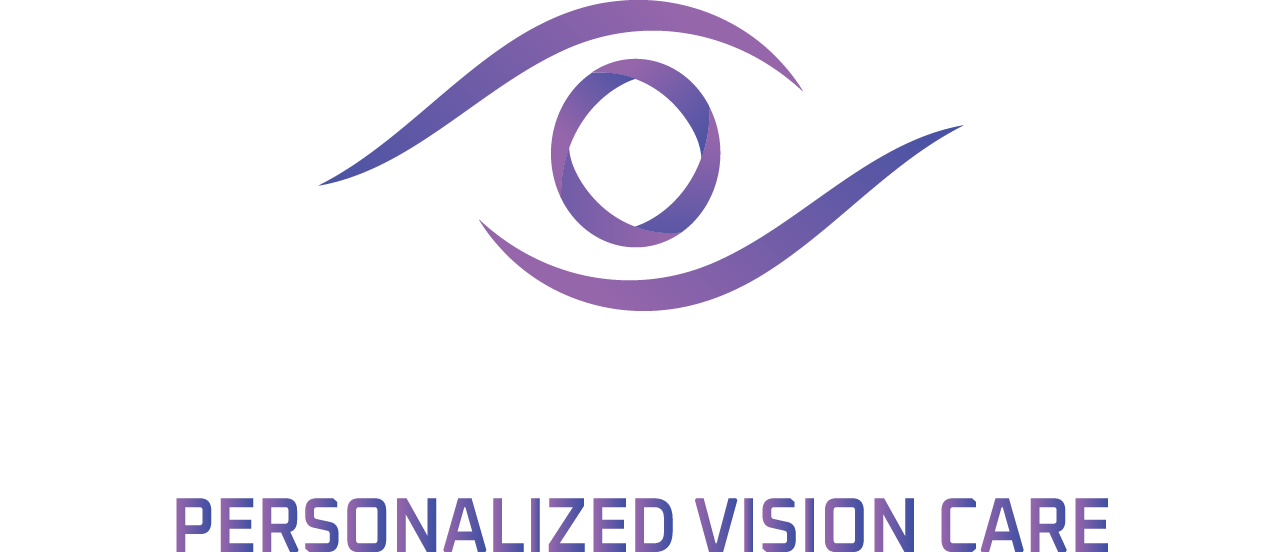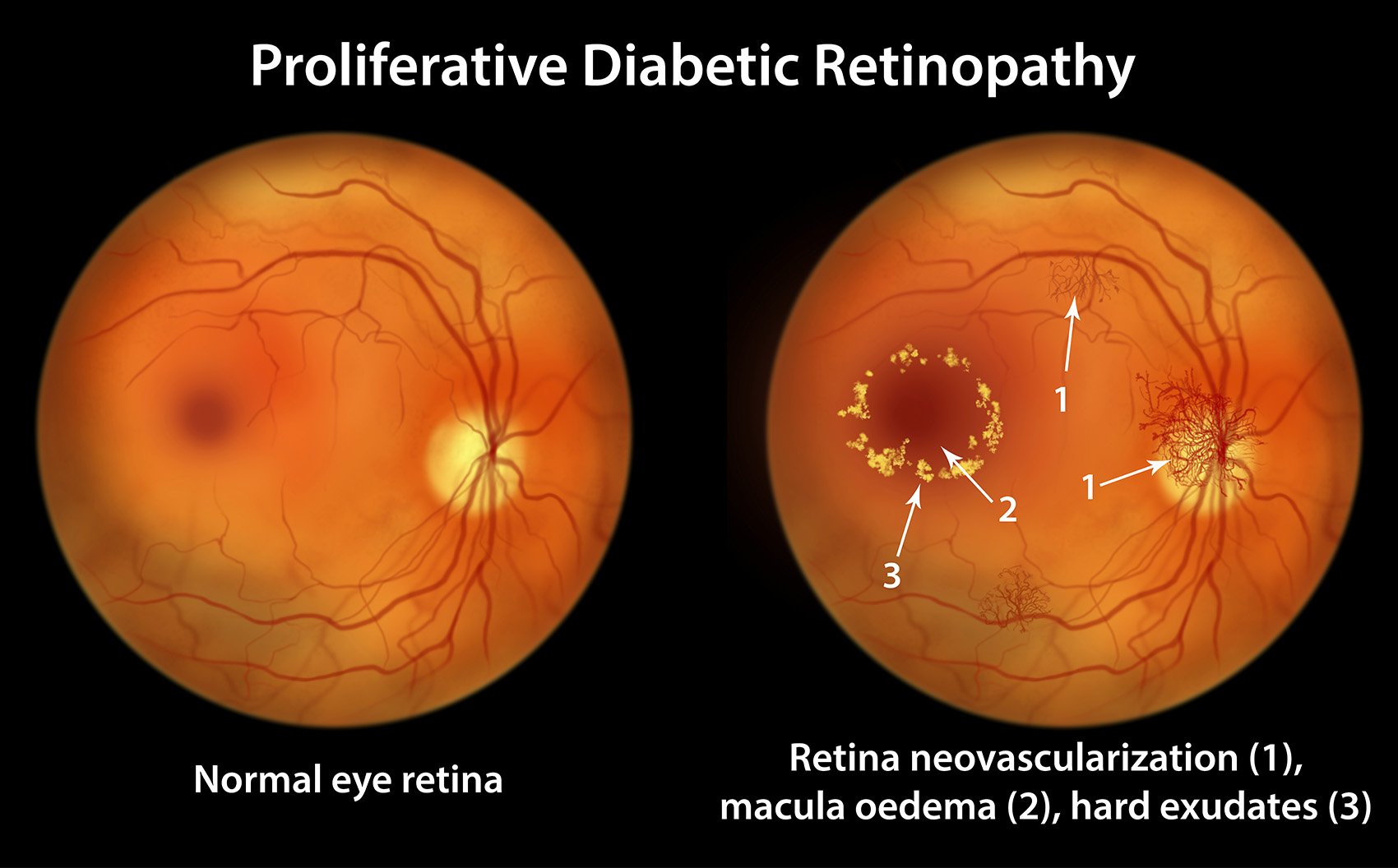
Diabetic Retinopathy
What is Diabetic Retinopathy?
Diabetic Retinopathy is a retinal illness caused by diabetes that can result in blindness. Poorly controlled diabetes damages the small blood vessels in the retina, resulting in poor blood flow. Chronic damage to these blood vessels, lack of oxygen and nutrients from poor blood flow result in diabetic retinopathy and vision loss. Damaged blood vessels may leak fluid that can cause the retina to swell. Retinal swelling in the central retina, also called diabetic macular edema (DME), can then cause blurring of vision. Over time, in diabetic retinopathy the retina may grow new blood vessels in a process called neovascularization. These new bloods vessels are fragile, can bleed and often grow in abnormal orientations that can damage the structure of the retina.
Clinical Manifestations
Symptoms of diabetic retinopathy can be sudden vision loss, difficulty reading, and sudden floaters. Decreased color vision and a central region of blurry vision can be symptoms of diabetic retinopathy.
Diabetic Retinopathy Risk Factors:
- Diabetes for many years
- Poorly controlled Diabetes
- High blood pressure
- High Cholesterol
- Pregnancy
Diagnosis
The diagnosis of diabetic retinopathy is made by a dilated eye exam by an ophthalmologist or an optometrist. Additionally, optical coherence tomography (OCT), color fundus photography and fluorescein angiography (FA) are clinical imaging studies that aid in diagnosis and monitoring of diabetic retinopathy.
Treatment
We currently have many FDA approved treatment options for diabetic retinopathy. Intravitreal anti-vascular endothelial growth factor (anti-VEFG) agent such as ranibizumab is an FDA-approved treatment for diabetic retinopathy. An intravitreal dexamethasone implant was approved by the FDA in 2014 for diabetic macular edema.
There are dual target agents such as faricimab-svoa approved in 2023 for the treatment of DME and aflibercept approved in 2019 for treating diabetic retinopathy. Additionally, many patients with diabetic retinopathy may benefit from a variety of laser treatments. To learn more about these exciting therapies call our office to schedule a visit.

Experiencing any of those symptoms?
Click the button below to schedule an appointment.
Location
2895 Loma Vista Rd, Suite C
Ventura, CA 93003
Hours
Monday-Friday
9 AM - 5 PM
Contact
Info@GeneticEyeTherapies.com
Phone: 805-413-5557 Fax: 805-764-8576


